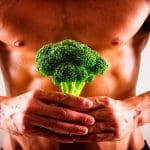As the popularity of veganism continues to grow, more and more people are turning to a plant-based diet for its health benefits, environmental impact, and ethical considerations. However, there is a common misconception that a vegan diet is only suitable for a certain age group or demographic. In reality, a well-planned vegan diet can provide essential nutrients and promote optimal health at every stage of life, from infancy to older adulthood. It is important to understand that being vegan is not just a trend, but a lifestyle that can be adapted to meet the needs of individuals of all ages. This article aims to debunk the notion that a plant-based plate is limited to a certain age group and instead provide evidence-based information on how veganism can be a healthy choice for everyone, regardless of age or life stage. From infants and children to pregnant women and older adults, this article will explore the benefits and considerations of a vegan diet for each stage of life, making it clear that it truly is a sustainable and nourishing choice for all.
Infancy to Adulthood: Nourishing Vegan Diets
From the earliest stages of life through adulthood, maintaining a nourishing vegan diet can provide a multitude of health benefits. Contrary to common misconceptions, vegan diets can be nutritionally adequate and offer all the essential nutrients required for optimal growth and development. In infancy, breast milk or formula serves as the primary source of nutrition, but as solid foods are introduced, a well-planned vegan diet can meet the nutritional needs of the growing child. Key considerations include ensuring an adequate intake of iron, vitamin B12, calcium, and omega-3 fatty acids, which can be obtained through fortified foods or appropriate supplements. As children transition into adolescence and adulthood, a variety of plant-based proteins, grains, fruits, vegetables, legumes, nuts, and seeds can provide the necessary nutrients for sustained energy, muscle growth, and overall health. With careful attention to nutrient requirements and meal planning, a vegan diet can support individuals of all ages on their journey towards a healthy and sustainable lifestyle.
Nutrient-Rich Meals for Growing Kids
As caregivers, ensuring that growing kids receive nutrient-rich meals is essential for their overall health and development. A plant-based diet can offer an abundance of vitamins, minerals, and antioxidants that support children’s growing bodies. Incorporating a variety of colorful fruits and vegetables, whole grains, legumes, and plant-based proteins can provide essential nutrients such as calcium, iron, vitamin C, and fiber. For example, a balanced meal for a growing child might include a quinoa and black bean salad, roasted sweet potatoes, steamed broccoli, and fresh berries for dessert. By focusing on nutrient-dense foods and incorporating a wide range of plant-based ingredients, parents can provide their children with the nourishment they need for optimal growth and well-being.
















































